The importance of themes
One of the most useful things about being a ticketer (writing tickets regularly) is learning about what you need to do to take care of yourself. You can get really good at it. Part of what works here is that you get to see your own patterns emerge - what you are good at doing and what areas you need to build. In this section we summarise the themes or patterns emerging from the 'Tickets' page. They are not presented in order of importance, they all matter. That said - I think that some of them are harder than others. I hope you find that these themes give you new ideas about what you can do to take care of yourself.
First aid
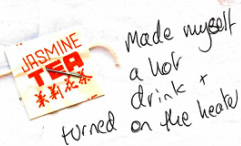
Most of the strategies listed on this page are long haul. What I mean is, you've have to be ticketing regularly to get real, sustained benefits. At times, particularly when there is a significant challenge .... you might need something special to get you through in the short term (in addition to outside help). What I am talking about is what we do with our emotional pain. How do you soothe yourself when you have emotional pain? Talking to a friend or having a good cup of tea might do it; a walk on the beach; a hug; a massage; acknowledging that you have pain. If you have been ticketing for a while you might notice patterns around first aid. You might also find it helpful to write yourself a list of your ten most effective first aid strategies so that when you next encounter a challenging issue you have a repertoire of strategies you can draw from.
Mindfulness
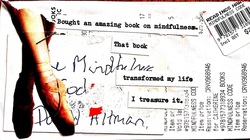
One of the most powerful things I have done to take care of myself is mindfulness training. That is, learning how to control my mind (mostly). This has meant finding out what a still mind feels like and then practicing strategies to cultivate a still mind. It has involved self hypnosis, meditation programs, listening to audio tapes, reading books - creating places where I can be still. I don't watch television in the evenings, don't listen to the radio and don't answer the phone after 8pm. All of these things help me to unclutter my head. I try to meditate every morning and each night I listen to a meditation tape. When I am practicing mindfulness strategies regularly I am amazed at how still my mind is. This is often followed by a lapse, because life is going well, and then a month or so later I can't believe how busy my mind is again. My head will be filled with planning the next job, worrying about what happened yesterday or what might happen tomorrow. Then I remember I haven't meditated in a while and so I start it up again. Each time I become more aware of what a 'still mind' feels like and I become more committed to achieving and maintaining it.
Expression
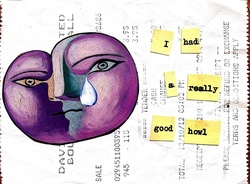
I used to spend so much energy fighting emotions that I felt I shouldn't be feeling. I have now learned to give myself space to express what I am feeling - whatever that is. Sometimes it is not until I express what I am feeling that I am able to move on. The emotion will often sit with me (even though I think it has gone) until I have expressed it. Ways of expressing that are safe and help take care of me include: having a good cry, talking to a buddy, screaming in the car (where no one else can hear me) or making an art representation (like a ticket) of what I am feeling. Another lovely strategy that compliments expression is ACT (acceptance and commitment therapy). Learning about ACT enabled me to let go of the 'should be ...' and the 'shouldn't be ...' conversations in my head and just sit with what is. It helped me to give strong, difficult emotions space without fusing with them (not going over them again and again and again in my head). For me it was important to have strategies for managing the broad range of emotions that I felt. If you are going to acknowledge and express your emotions then life might feel a bit up and down. Life is a roller coaster if you are a feeling person. Expressing your emotions also requires that you have faith in yourself. When I started expressing my emotions I felt like I was taking up so much space - always feeling something. I also became aware that people who do not express their feelings may not be comfortable with someone that does. Make sure that you find a safe space and safe people to express yourself with.
Exercise
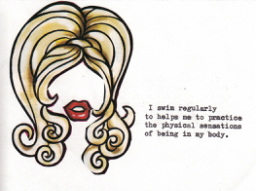
Exercise is pretty widely recognised as a great way to take care of our physical health. Most of us know stuff about the benefits of exercise in reducing the risk of stroke, heart attack and other preventable diseases. It's also good for our joints, preventing arthritis and weight bearing exercise is good for calcium and strong bones. Less well recognised are the benefits to our mental health. Exercise can ease the symptoms of depression and anxiety. According to the MayoClinic, excercise can release good brain chemicals such as endorphins and reduce other chemicals that make depression worse. Excercise can also make us feel good by raising our body temperature (this has a calming effect) and help us to gain confidence. I exercise every morning - I find that if I don't, I don't get as much out of my day. I find that if I don't exercise I tend to be a bit sensitive and personalise stuff. So, excercise is not a luxury (you were right Derek) - it's as essential to me as water intake.
Dance
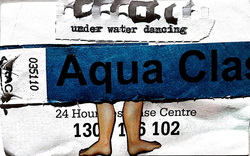
Dance is joyous. Dancing helps me shift the energy in my body. Sometimes when something difficult happens - and the emotion feels stuck in my gut like a great lump, I'll put on some music and get up and dance in my lounge. Mostly I feel too unco to dance in public, so I do 'underwater dancing' or aqua aerobics. In aqua aerobics I can be daggy and unco and no one can tell underwater. I love the good music, the group of people I meet at the aqua class, the sense of fun, as well as the endorphins from the exercise. I have a buddy I go with and between moves we check in on what is happening in each other's lives. There is something special about dancing like no one else is watching.
Therapists ....
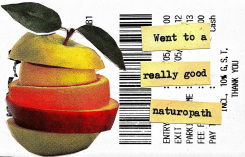
There are a broad range of traditional and alternative therapists that can help you to take care of yourself. The list of potential therapies is endless: massage therapy, physiotherapy, osteopaths, naturopaths, herbalists, a good GP, ... Therapists can also include the kind of traditional therapies that help with depression and anxiety. This might include accessing counselling, or support from a mental health practitioner. Sometimes these therapies might include medication. I used antidepressants to buy myself time to work through stuff. I found a great GP and was able to talk about my fear that going on medication was a sign of weakness, that I 'should' have been able to take care of myself without medications. I felt like I was a flawed human and that this was a bad thing. Now I realise I am imperfect - and that this makes me more human, more interesting, more loveable. Antidepressants are not for everyone but they bought me time while I worked out how to REALLY take care of myself.
Beauty
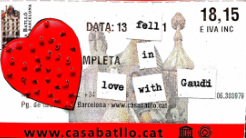
Contact with beautiful things (and beautiful people) can be fuel for the soul. It can make your heart sing. It's about hearing, seeing, feeling, experiencing beauty. It can include going to an art gallery or performance, a concert or exhibition. It can include listening to beautiful music; seeing a beautiful garden; playing with a pet; having a scented bath. It can include food - but food is so important it also has a theme all of its own. I have found that one of the most enriching things is to be surrounded by beautiful people, people that make you feel good just by seeing them, or hearing them or spending time with them. I have a friend who is the most loving person I have ever met. She is warm and generous and deeply spiritual. Being around her is tonic for many of her family and friends. Spending time with beautiful people like this can be a great way of taking care of yourself.
Food
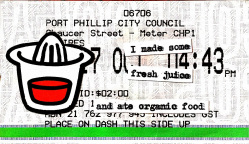
Food .... its not just about chocolate. There are so many ways that we can nurture ourselves with food. Getting your favourite food; eating food that is good for your body; finding out what you are allergic to - and NOT eating it; eating out; having someone prepare food for you. Sharing a meal with friends. Eating somewhere special. Making something really special for yourself, making something special for someone else. Sometimes making food can be very meditative.
Communication
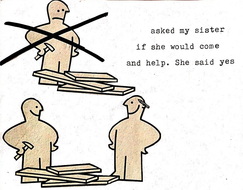
Communicating our needs can sometimes be difficult. Some of us learned not to take up too much space in the world. Most of us have learned that telling people what your needs are doesn't always mean that your needs will then be met. That can be difficult. Telling people what you think and feel and want can sometimes be harder than we think. It comes with a certain vulnerability. It's a bit different from asserting yourself. It's ... hmm.... more everyday and ordinary, doesn't necessary involve dissonance or conflict. Assertiveness is a category all of its own.
Assertiveness
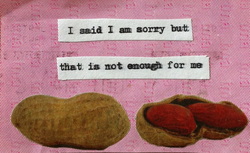
Assertiveness can be an important part of taking care of yourself. It can involve telling people when you think they are not respectful; telling people when you have had enough. This one is harder than eating chocolate. It can include STANDing up for yourself with others. Tough stuff. Sometimes, the more you love someone - the more investment you have in the relationship (your partner, family, boss, colleague) the harder it is to STAND up for yourself. But, I found that this process of renegotiating relationships can be fruitful - it can help to make a relationship stronger, more real.